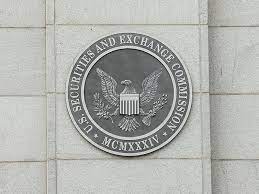The SEC’s Push on ESG Disclosure Regulations

Corporations are holding their respective breaths. SEC Chairperson Gary Gensler and his SEC colleagues are moving quickly to establish a regulatory framework for ESG disclosures. Climate change and diversity are the key issues surrounding this disclosure regime.
The SEC initiative is easier said than done and presents a number of interesting issues that will have to be resolved. The SEC has invited comments on climate change disclosure requirements. The SEC initiative is not limited to climate change but will extend to topics such as diversity, equity and inclusion (“DEI”).
The SEC’s initiative is potentially far-reaching, extending far beyond “material” information. Companies have faced important issues relating to disclosure of material information – the complexity of disclosure is about to increase exponentially. Whatever framework is adopted, there is no question that companies will increase disclosures on a range of issues.
The SEC’s intent is to increase investor access to important ESG drivers or measurements. The SEC will play a critical role in the definition of ESG and measuring of ESG initiatives.
As I have often said, it is easy to get lost in ESG. The SEC has to keep its focus on general principles and defined measures. If the disclosure regime is built around general, ill-defined concepts, such a system will fail to provide much-needed definition in the ESG arena.
The SEC’s focus should be tied to information that is important to a “reasonable investor.” At the same time, the SEC has to balance the increasing investor demand for standards around ESG factors and the need for consistent ESG measurements to compare among companies.

If the SEC undertakes this initiative with broad policy objectives – mandating disclosures as a way to advance a broad ESG policy agenda – the regulatory regime will prove unworkable. The SEC’s framework has to be tied to investor demand for standard disclosure requirements and measurements. A fair standard will bring about investor response and public support.
Climate change disclosures present a first and significant challenge for the SEC. Companies have to develop methods to estimate the impact of climate change on their businesses. To do so, companies have to analyze a variety of difficult issues, including the impact of extreme weather changes, markets, supply chains, access to human and material resources, and possible government regulation.
In this context, the SEC has to ensure that it maintains proper focus on its important goal – disclosure of material, financial information. Policy objectives aside, the question for the SEC is how each of the ESG issues effects the company’s financial reporting. Extreme weather will have an obvious impact on a company’s financial operations but the extent and measurement of such an impact may be hard to estimate.

The SEC’s framework should be keyed to a basic concept of “materiality.” Each ESG factor should be analyzed under this standard. A risk ranking approach would be essential in this process to identify ESG issues that present material concerns. A materiality analysis would help point the analysis to issues of concern to each specific company. ESG factors may differ from company to company and should not be applied in a one-size-fits-all manner.















